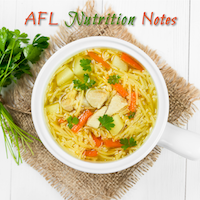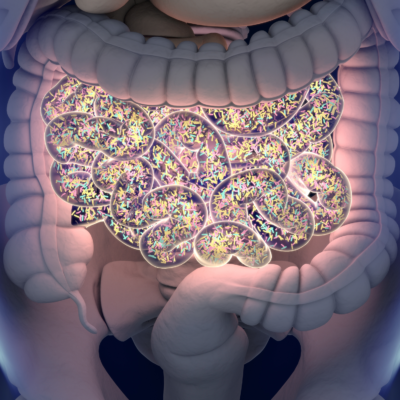Environment and Nutrition
Beginning at conception, environmental factors in health can accumulate over a lifetime and be from sources as broad as geographic location and economic status to specific external sources including physical activity, occupation, risky behaviors and diet. But some of these factors, especially in terms of diet are highly modifiable.
Important research is now being conducted on this concept of the “exposome,” as an environmental complement to the human genome. NRI researchers are learning how diet and other environmental exposures interact with disease and affect responses to treatment.
Publications
Environment and Nutrition Publications
2020
Precision (Personalized) Nutrition: Understanding Metabolic Heterogeneity. Zeisel S
Perspective: Dietary Biomarkers of Intake and Exposure-Exploration with Omics Approaches. Zeisel S
2019
Obesity and Cancer Metabolism: A Perspective on Interacting Tumor-Intrinsic and Extrinsic Factors. Hursting S
When less may be more: calorie restriction and response to cancer therapy. Hursting S
Energy balance and obesity: what are the main drivers? Hursting S
Metabolic Reprogramming by Folate Restriction Leads to a Less Aggressive Cancer Phenotype. Krupenko S
Early-Life Predictors of Fetal Alcohol Spectrum Disorders. May P
Alcohol’s Dysregulation of Maternal-Fetal IL-6 and p-STAT3 Is a Function of Maternal Iron Status. Smith S
2018
Energy balance and gastrointestinal cancer: risk, interventions, outcomes and mechanisms. Hursting S
Research Strategies for Nutritional and Physical Activity Epidemiology and Cancer Prevention. Hursting S
2017
Metabolic Reprogramming by Folate Restriction Leads to a Less Aggressive Cancer Phenotype. Krupenko S
Contribution of Dietary Supplements to Nutritional Adequacy in Various Adult Age Groups. Zeisel S
2016
CerS6 Is a Novel Transcriptional Target of p53 Protein Activated by Non-genotoxic Stress. Krupenko N
Abnormal Eating Behaviors Are Common in Children with Fetal Alcohol Spectrum Disorder. Smith S
Impact of a western diet on the ovarian and serum metabolome. Sumner S
Metabolomics enables precision medicine: “A White Paper, Community Perspective”. Sumner S
Related News
Nutrition Notes from AFL@JWU – April 18
April 18, 2018 – The science on food and nutrients and their relationship to health is complex. Individuals are unique and there are various factors that influence health outcomes. Researchers at the UNC Nutrition Research Institute (NRI) are working to understand the intricacies of diet, nutrients, and their relationship to disease prevention and progression with the goal that general dietary guidance will one day be replaced with customized nutrition recommendations. Current research suggests following an overall healthful diet, rich in plants, that emphasizes fruits and vegetables, whole grains, lean protein, and unsaturated fats, and staying physically active may best support good health. In this program we consider the health benefits of chicken.
April 2018
Gut and Microbiome Study March 28, 2018 – At the NRI, we are conducting pioneering research on the interplay of diet and the gut microbiome in human health. The gut microbiome is a complex community of microorganisms living in our lower intestine; although we have...
Kohlmeier Named Editor-in-Chief of New Journal: BMJ Nutrition, Prevention & Health
March 29, 2018 – Leading healthcare knowledge provider BMJ will launch BMJ Nutrition, Prevention & Health later this year in July 2018 at the 4th NNEdPro International Summit in Cambridge. Co-owned with the NNEdPro Global Centre for Nutrition and Health, the journal is dedicated to publishing high quality, peer reviewed articles that focus on diet, exercise and healthcare technology on health and wellbeing.
Gut Microbiome, Diet and Health
March 28, 2018 – At the NRI, we are conducting pioneering research on the interplay of diet and the gut microbiome in human health. The gut microbiome is a complex community of microorganisms living in our lower intestine; although we have long known of its existence, recent technological advances have allowed us to begin to define the composition and function of this dynamic community. This growing body of research demonstrates vast biologic activity within the gut microbiota, which may have the potential to affect our physiology and help guide health recommendations and interventions.




